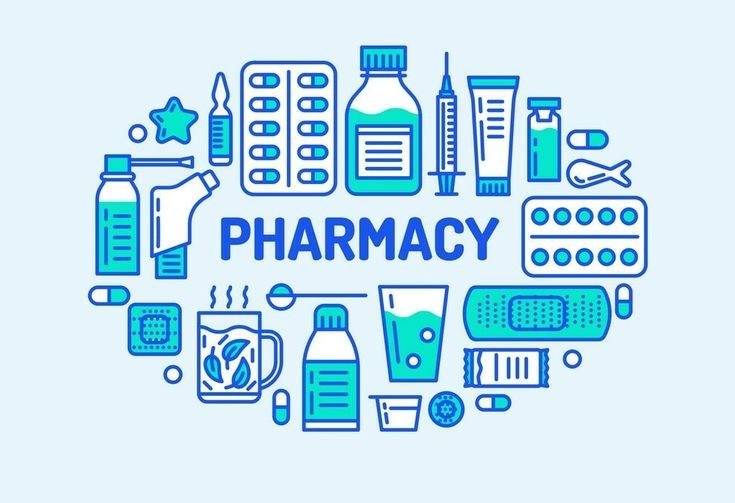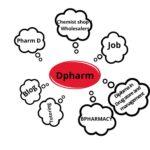📖 All About D. Pharm: A Gateway to a Fulfilling Healthcare Career
D. Pharm: The Diploma in Pharmacy (D. Pharm) is not just an academic qualification—it’s a life-altering career path that combines science, service, and stability. Whether you dream of working in hospitals, owning a pharmacy, or continuing into higher pharmaceutical studies, D. Pharm offers a strong foundation with real-world impact.
- 📖 All About D. Pharm: A Gateway to a Fulfilling Healthcare Career
- 🕰️ History of D. Pharm in India and the World
- 📌 9 Powerful Facts About D. Pharm You Must Know
- 🗓️ Timeline of D. Pharm Development
- 💡 Significance of D. Pharm in Today’s World
- 🏥 1. Critical Support to Healthcare Systems
- 🌍 2. Serving Underserved Communities
- 🧠 3. Educational Contribution
- 🎉 Wishing Message for D. Pharm Students and Professionals
- 🙋♀️ FAQs About D. Pharm
- ❓What is the difference between D. Pharm and B. Pharm?
- ❓Can I start my own medical store after D. Pharm?
- ❓Is D. Pharm valid for government jobs?
- ❓Can I go abroad after D. Pharm?
- ❓What is the salary after D. Pharm?
- 🧠 Important Points to Remember
- 👨👩👧👦 Importance of D. Pharm in Daily Life and Society
- 🎯 Why D. Pharm Is Underrated but Crucial
- ✅ Conclusion: A Small Course, A Big Impact
- 🚀 Final Thought
In today’s era of fast-paced medical advancements and growing health awareness, the importance of pharmacists is being recognized like never before. This article will take you through everything about D. Pharm—its history, significance, career scope, FAQs, timeline, and its value in personal and societal life.
🕰️ History of D. Pharm in India and the World
Pharmacy, as a practice, has ancient roots, but formal pharmaceutical education took shape in the 20th century. Here’s how the D. Pharm program evolved:
1948: India enacted the Pharmacy Act, recognizing pharmacy as a regulated profession.
1949: The Pharmacy Council of India (PCI) was formed to oversee standards in pharmacy education.
1950s-60s: D. Pharm courses were introduced in pharmacy colleges across the country to meet growing healthcare demands.
1970s-80s: PCI formalized the 2-year curriculum and mandated practical training for better hands-on experience.
2000s-Onwards: The D. Pharm program adapted to digital records, retail chains, and global standards.
Today, D. Pharm is a globally recognized career foundation with rising demand in both urban and rural healthcare systems.
📌 9 Powerful Facts About D. Pharm You Must Know
Duration: A 2-year full-time program followed by 3 to 6 months of internship or practical training.
Eligibility: Completion of 10+2 with Science subjects (Physics, Chemistry, Biology/Mathematics).
Regulation: Controlled by the Pharmacy Council of India under the Pharmacy Act, 1948.
Career Pathways: Work as a Registered Pharmacist, assistant in hospitals, quality analyst, or open your own pharmacy.
Stepping Stone: D. Pharm is the perfect base for pursuing B.Pharm, Pharm.D, or even MBA in Healthcare.
Affordable Yet Effective: D. Pharm is often more affordable than other healthcare courses yet equally respected.
Community Impact: Pharmacists often serve as the first point of healthcare contact, especially in rural India.
Global Mobility: Indian D. Pharm holders are welcomed in Middle East, Canada, and Europe after certification exams.
High Job Security: Demand for pharmacists continues to grow due to aging populations and chronic diseases.
🗓️ Timeline of D. Pharm Development
| Year | Event |
|---|---|
| 1948 | Pharmacy Act Passed in India |
| 1949 | Formation of PCI |
| 1950 | D. Pharm programs begin across states |
| 1981 | PCI revises and standardizes curriculum |
| 2000s | Emphasis on digital healthcare and record-keeping |
| 2020 | D. Pharm professionals recognized as COVID-19 frontline warriors |
| 2024 | AI tools introduced in pharmacy training modules |
💡 Significance of D. Pharm in Today’s World
🏥 1. Critical Support to Healthcare Systems
Pharmacists play a key role in making sure the right medication reaches the right patient in the right way. They also reduce errors, prevent drug abuse, and guide on safe usage.
🌍 2. Serving Underserved Communities
In many rural and tribal areas, a pharmacist may be the only accessible healthcare provider. Their presence can be the difference between life and death.
🧠 3. Educational Contribution
D. Pharm graduates often go on to become educators in training institutes, helping prepare the next generation of pharmaceutical professionals.
🎉 Wishing Message for D. Pharm Students and Professionals
🌸 Heartiest wishes to all D. Pharm students and graduates!
Your journey of healing begins with learning. May you serve society with wisdom, empathy, and care. You are the silent warriors of healthcare—keep growing, keep healing! 🌟
🙋♀️ FAQs About D. Pharm
❓What is the difference between D. Pharm and B. Pharm?
D. Pharm is a 2-year diploma program.
B. Pharm is a 4-year undergraduate degree.
D. Pharm is quicker to complete and sufficient for becoming a Registered Pharmacist.
❓Can I start my own medical store after D. Pharm?
Yes! Once registered with the State Pharmacy Council, you can legally open and operate a pharmacy or medical store.
❓Is D. Pharm valid for government jobs?
Absolutely. Many government hospitals, health departments, military services, and PSUs hire D. Pharm holders.
❓Can I go abroad after D. Pharm?
Yes, especially to the Gulf countries, Australia, and Canada. You may need to pass local pharmacy certification exams.
❓What is the salary after D. Pharm?
Starts around ₹15,000–₹25,000/month in India, and can go much higher with experience or international placements.
🧠 Important Points to Remember
✅ Approved by PCI is mandatory.
✅ Practical training is essential.
✅ Ethics, documentation, and patient communication are integral.
✅ Licensure is mandatory for practice.
👨👩👧👦 Importance of D. Pharm in Daily Life and Society
🌞 In Our Lives:
We depend on pharmacists to understand prescriptions.
They help us avoid side effects and dangerous drug interactions.
Act as trusted guides for OTC medication advice and health supplements.
🏛️ In Society:
Encourage rational use of medicines.
Help curb counterfeit drugs by maintaining drug records.
Spread awareness on vaccination, family planning, and chronic diseases.
🎯 Why D. Pharm Is Underrated but Crucial
Despite being one of the shortest medical programs, D. Pharm carries deep societal importance. It’s often overshadowed by MBBS or BDS programs, but a skilled D. Pharm graduate:
Keeps patients safe
Ensures the quality of care
Promotes community health
Bridges the gap between rural patients and modern medicine
It’s not just a career—it’s a calling.
✅ Conclusion: A Small Course, A Big Impact
D. Pharm: The Diploma in Pharmacy (D. Pharm) may only take two years, but its impact lasts a lifetime. From helping a parent buy medicine for their sick child to guiding a diabetic patient on insulin dosage, pharmacists are everyday heroes whose work saves lives silently.
Choosing D. Pharm is a powerful decision—it opens up a world of responsibility, respect, and relevance. In a world that often overlooks support roles, being a pharmacist means you become the silent guardian of public health.
🚀 Final Thought
“Pharmacists are the most accessible healthcare professionals. They may not perform surgeries, but they prevent emergencies. In every prescription filled, there’s a touch of care and a life preserved.”








